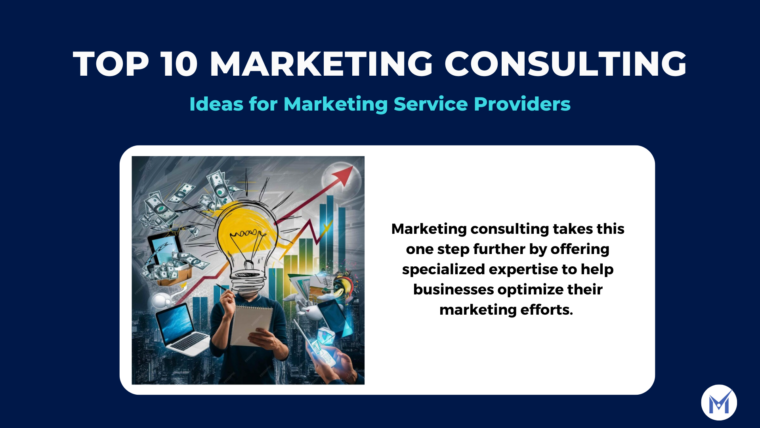In today’s fast-paced digital landscape, businesses without an online presence risk falling behind their competition. As more organizations and entrepreneurs recognize the importance of a strong online identity, the demand for professional website services has skyrocketed. Launching a website business offers an exciting and rewarding opportunity to capitalize on this growing market, providing essential services to clients seeking to establish and maintain their digital footprint.
Starting a website service business can be a lucrative and rewarding venture. From designing and developing websites to providing ongoing maintenance and support, a website service business caters to the needs of various clients looking to establish their online presence. In this ultimate guide, we will walk you through the steps to launch your website service business successfully in 2023.
Starting a website service business can be a lucrative and rewarding venture. From designing and developing websites to providing ongoing maintenance and support, a website service business caters to the needs of various clients looking to establish their online presence. In this comprehensive guide, we will walk you through the essential steps of launching your website business, from identifying your niche and services to developing a robust marketing strategy and ensuring customer satisfaction.
- Website service overview
- Website service options
- Unique and differentiated service portfolio
- Developing a pricing strategy
- Establishing your service delivery team
- Creating marketing and sales strategies
- Service delivery
- Foster customer satisfaction and Referrals
Website service overview
A website service business that specializes in providing an array of solutions to help clients establish and enhance their online presence. These services cater to various aspects of designing, developing, maintaining, and optimizing websites to ensure they meet the unique requirements of the clients.
At its core, a website service encompasses the design and development of visually appealing and functional websites, along with additional services that may include hosting, domain registration, search engine optimization (SEO), content management, and e-commerce solutions. The goal of these services is to help businesses establish a strong online presence, engage with their target audience, and generate leads or sales.
Website service options
When it comes to website services, there is an extensive range of options that you can provide to cater to the diverse needs of clients seeking to establish or enhance their online presence. The key to your success lies in your ability to provide high-quality, customized solutions that meet your client’s unique requirements, backed by a strong portfolio that showcases your expertise and accomplishments in the industry. Below are some of the services that you can offer:
- Web Design – Creating visually appealing and user-friendly website layouts, themes, branding, and designs.
- User Experience (UX) and User Interface (UI) Design – Enhancing website usability and navigation, focusing on providing a seamless and enjoyable user experience.
- Website branding – A specialized service that focuses on developing a website’s branding strategy, designing its visual elements such as logo, color scheme, typography, and graphics, and creating content that aligns with the brand’s values and mission
- Web Development – Building functional and responsive websites using various programming languages and frameworks.
- Web Hosting and Domain Registration – Offering reliable hosting services and helping clients register and manage domain names.
- Search Engine Optimization (SEO) – Optimizing websites to rank higher on search engine results pages, driving organic traffic, and increasing visibility.
- Content Management and Creation – Developing and managing website content, including text, images, videos, and multimedia elements.
- E-commerce Solutions – Designing and implementing online stores, integrating payment gateways, and managing product listings and inventory.
- Website Maintenance and Support – Providing ongoing updates, troubleshooting, and technical support to ensure websites run smoothly and securely.
- Social Media Integration – Integrating social media platforms into websites to increase engagement and drive traffic.
- Email Marketing and Automation – Setting up email marketing campaigns and automating customer communications for lead nurturing and retention.
- Analytics and Reporting – Tracking website performance and providing clients with insights into user behavior, traffic sources, and other key metrics.
- Conversion Rate Optimization (CRO) – Implementing strategies to improve the rate at which website visitors convert into leads, subscribers, or customers.
- Website Security and Compliance – Ensuring websites meet security standards and comply with relevant regulations, such as GDPR or ADA guidelines.
Build your unique and differentiated service portfolio
Today’s customers have many options to get a website done using website builders, content management systems (CMS) such as WordPress, and out-of-the-box solutions. For custom solutions, there is also a plethora of options with websites ranging from a few hundred dollars to hundreds of thousands. Hence it is critical to showcase your difference, so clients can clearly identify your differentiation and buy your services. Here are a few ways to differentiate your service from the rest of the competition.
Differentiate by Industry
One way to differentiate your services is by the industry. The website design and customer expectation differs by industry. For example, a real estate company’s website may need to showcase property listings, while an online retailer needs to showcase their product listing. Below are a few ways to differentiate your web design service by industry.
- Choose industries where you have prior experience or knowledge, such as healthcare, education, real estate, finance, or retail.
- Understand each industry’s unique challenges, regulations, and requirements to provide tailored solutions.
- Create industry-specific templates and design elements that cater to the aesthetic preferences and expectations of your target market.
- Offer specialized features and functionalities relevant to the industry, such as appointment booking for healthcare websites or property listings for real estate websites.
Differentiate by Function, technology, or platform
- Function – Focus on specific functions, such as e-commerce, digital marketing, content management, or membership sites.
- Technology – Develop expertise in relevant platforms and technologies, such as Shopify or WooCommerce for e-commerce websites or WordPress for content management.
- Features – Offer customized features and integrations that cater to the unique requirements of each function, such as payment gateways, inventory management, or member management tools.
- Service – Provide ongoing support and maintenance services tailored to the specific needs of each function, ensuring optimal performance and security.
Differentiate by combo offerings
- Develop bundled service offerings for different industries or functions, such as a package for e-commerce websites that includes design, development, and SEO.
- Offer tiered pricing options to accommodate varying budgets and requirements, making your services accessible to a wider range of clients.
- Include additional services relevant to your target industries or functions, such as social media management, email marketing, or industry-specific SEO.
Differentiate by portfolio or clientele
- Showcase industry-specific or function-focused projects in your portfolio to demonstrate your expertise and experience.
- Include case studies that highlight your ability to address the unique challenges and requirements of your target market.
- Use your portfolio to attract potential clients in your chosen industries or functions, positioning your business as a specialist in these areas.
Developing a pricing strategy
Pricing is a key purchasing decision-maker for websites because it directly affects the perceived value of the offered service. Customers are always looking for the best value for their money, and the price of the service plays a significant role in their decision-making process.
A website that offers competitive pricing can attract more customers and generate more revenue. Too high pricing may discourage potential customers, while pricing that is too low may imply low quality or lack of value. Therefore, finding the right pricing strategy that aligns with the brand’s positioning and target audience is crucial to the success of a website. It requires careful analysis of the market, competition, costs, and customer behavior to find the optimal balance between affordability and profitability. Here are a few pricing options to consider:
- Hourly Rate Pricing – Charging an hourly rate is a flexible pricing strategy where clients are billed based on the actual time spent working on their projects. It accommodates varying project scopes but can be challenging for clients who prefer a fixed budget.
- Fixed Package Pricing – Offering fixed-price packages involves charging a predetermined amount for a set of predefined services or features. This strategy helps clients with budgeting but requires clear outlines of each package’s scope to avoid misunderstandings.
- Custom Quote Pricing – Providing custom quotes based on specific project requirements allows for maximum flexibility and ensures a clear understanding of the project’s expectations and costs. This strategy can be more time-consuming but is highly adaptable to unique client needs.
- Value-Based Pricing – Focusing on the perceived value of the website service, value-based pricing emphasizes the benefits and outcomes of the services. This strategy requires a strong track record of success and a reputation for delivering high-quality results to clients.
- Retainer or Subscription Pricing – Charging a recurring fee for ongoing website services, such as maintenance, support, or content updates, encourages long-term client relationships and fosters loyalty. This approach provides a predictable income stream and ensures continuous support for clients.
Differentiating your service combined with the right pricing would help you cut through the clutter and help customers make purchasing decisions about your services faster.
Web design service delivery team
A website service delivery team is responsible for delivering and maintaining websites for clients. The team is typically made up of individuals with various roles and responsibilities, working together to ensure that the website meets the client’s requirements and is delivered on time and within budget. Some of the different roles and responsibilities within a website service delivery team may include:
- Project Manager – Responsible for overseeing the website project from start to finish, ensuring that it is completed within the specified timeframe and budget. They coordinate with the client and the team members to ensure everyone is on the same page.
- Branding Specialist – A Branding Specialist is responsible for creating and maintaining a brand’s identity, messaging, and positioning in the marketplace. They work to develop a cohesive and consistent brand strategy across all channels and touchpoints, from advertising and marketing to product design and customer service.
- Web Designer – Creates the visual design of the website, including layout, color scheme, typography, and overall style. They work closely with the client to ensure that the design aligns with their brand and vision.
- Developer – Responsible for implementing the visual design using web technologies such as HTML, CSS, and JavaScript. They ensure that the website is responsive and optimized for different devices and screen sizes.
- Copywriter – A copywriter is responsible for creating written content for a variety of marketing and advertising materials, including website copy, social media posts, email marketing campaigns, print ads, and more. Their primary goal is to write persuasive and engaging content that connects with the target audience and motivates them to take action.
- Content Strategist – Develops the content strategy for the website, including identifying the target audience, creating a content calendar, and ensuring that the content is SEO optimized.
- Quality Assurance (QA) Specialist – Tests the website for functionality, usability, and compatibility across different browsers and devices. They identify and report any bugs or issues to the development team for fixing.
- Technical Writer – Creates documentation and user manuals for the website, explaining its functionality and features.
Click here to see how to set up your service delivery team in Minutly. Depending on the location of your team – onshore, near shore, or offshore; you can build competitive pricing options for your clients.
Focus on the first sale
Making the first sale can be a critical milestone for any new business or website service. Here are a few ways to make the first sale:
- Offer a discount – Offer a discount or special promotion to incentivize potential customers to make their first purchase. This can help to build trust and encourage them to try out the product or service.
- Provide free consultation – Offering free samples or trials can be an effective way to introduce potential customers to the product or service, and give them a taste of what they can expect if they make a purchase.
- Referrals – Leveraging friends and family can be a helpful way to make the first sale for a new business or website service. Offering exclusive discounts or promotions, asking for honest feedback, and encouraging them to share their experience on social media or with their own networks can help generate buzz and interest in the product or service. Additionally, building personal connections and establishing trust with friends and family can provide a solid foundation for future sales and customer loyalty.
- Leverage social proof – Utilize social proof, such as customer reviews, testimonials, or case studies, to show potential customers that others have had a positive experience with the product or service.
- Build relationships – Focus on building relationships with potential customers through personalized outreach, engagement on social media, and other communication channels. By establishing a connection, you can increase the likelihood of customers purchasing and becoming loyal customers.
- Offer exceptional customer service – Providing exceptional customer service can set your business apart and encourage potential customers to make a purchase. Make sure to respond promptly to inquiries, provide helpful information, and go above and beyond to exceed expectations.
Click here to see how you can set up offers and discounts in Minutly. Click here for more detailed sales and marketing strategies for your service business.
Service Delivery
To run a viable business, you need recurring revenue. Service businesses are built on trust, so providing exceptional service is key to success. Exceptional service involves a combination of technical expertise, effective communication, and a customer-centric approach. Ensure your customer is engaged throughout the development process, and ensure that their needs are always a top priority. Here are some key strategies to consider:
- Set clear expectations – Start by setting clear expectations with the customer regarding the scope of the project, timeline, and deliverables. This helps to manage their expectations and avoid any misunderstandings down the line.
- Communication – Communicate regularly with the customer throughout the development process to provide updates on progress, address any questions or concerns they may have, and keep them engaged in the process.
- User experience – Keep the user experience at the forefront of the development process, ensuring that the website is easy to navigate, visually appealing, and functional.
- Quality of service – Conduct thorough testing to ensure that the website functions properly across different devices, browsers, and user scenarios.
- Offer revisions – Satisfying customer needs often takes multiple iterations. Be flexible offering revision of work if needed.
- Provide Support – Offer ongoing support to the customer after the website launch, addressing any technical issues or providing additional training as needed.
Customer Satisfaction and Referrals
Fostering customer satisfaction and referrals after a website service is delivered is essential for building a strong reputation and generating new business. Here are a few strategies to consider:
- Follow up with the customer – Follow up with the customer after the website launch to ensure that they are satisfied with the service and to address any issues or concerns they may have.
- Ask for feedback – Solicit feedback from the customer on their experience with the website development service, and use this feedback to make improvements and show that their opinion is valued.
- Provide ongoing support – Offer ongoing support to the customer after the website launch, addressing any technical issues or providing additional training as needed.
- Encourage referrals – Encourage satisfied customers to refer others to the website development service, by offering incentives or simply asking for referrals.
- Leverage social media – Use social media to showcase the website and highlight the positive experience of the customer, as well as to engage with potential customers and build relationships.
Summary
In conclusion, a website service business offers a wide range of solutions to help clients establish and enhance their online presence. These services cater to various aspects of designing, developing, maintaining, and optimizing websites to ensure they meet the unique requirements of the clients. To succeed in this competitive industry, it’s essential to differentiate your services by focusing on a niche, offering a diverse range of solutions, and implementing an effective pricing strategy.
Launching a website service business on the Minutly platform can significantly accelerate the growth process. Minutly provides a marketplace that connects website service providers with clients looking for their specific skills and expertise. By setting up a Minutly profile and showcasing your services, you can quickly reach a global audience, build your reputation, and secure clients. This platform also simplifies the process of managing projects, communicating with clients, and receiving payments, making it an ideal starting point.









50+ Website features that makes running a business easier
Top 10 essential features for a SaaS website
Website with a purpose: How to drive quality website traffic?
Website with a purpose: How to capture more leads.
What is a Service Catalog?
Top 10 Essential Sales Service Requests Every Business Should Offer
Sharing your Minutly Catalog
Setting up your catalog